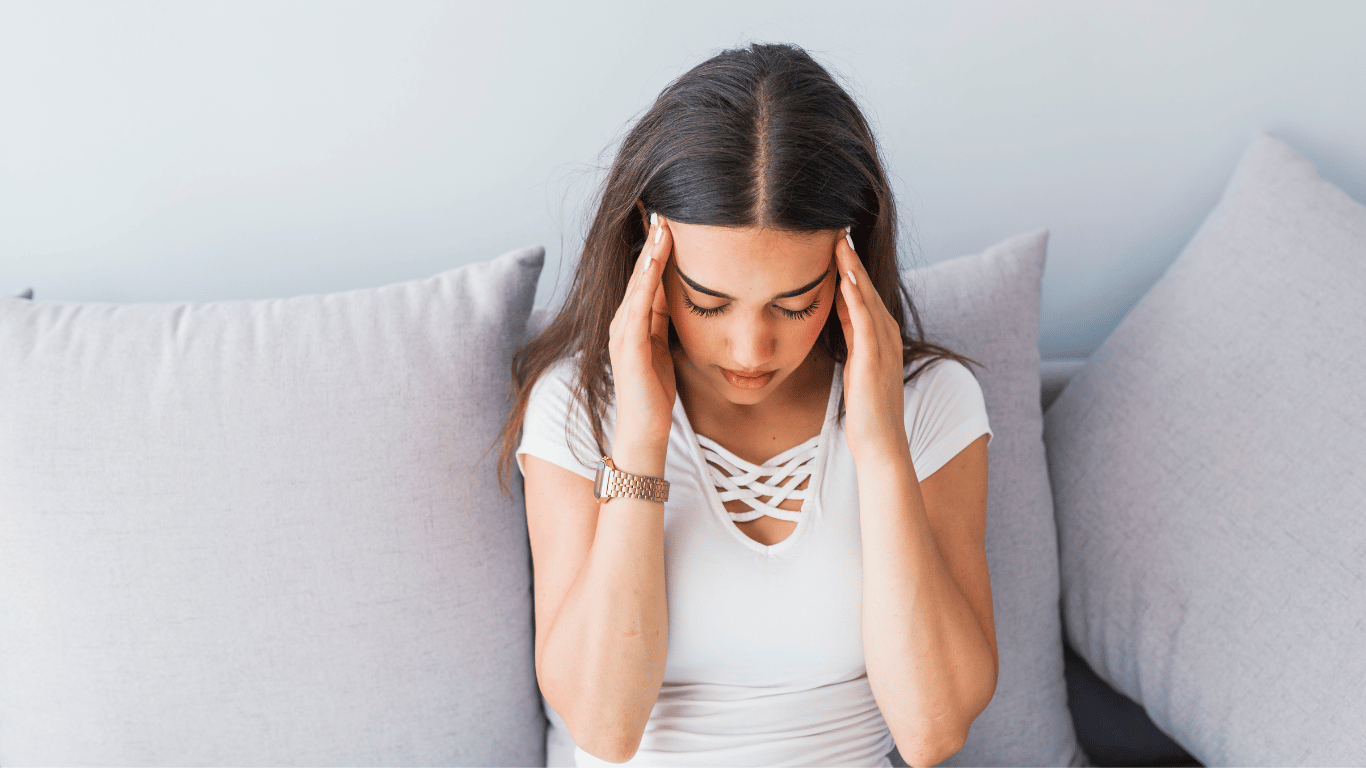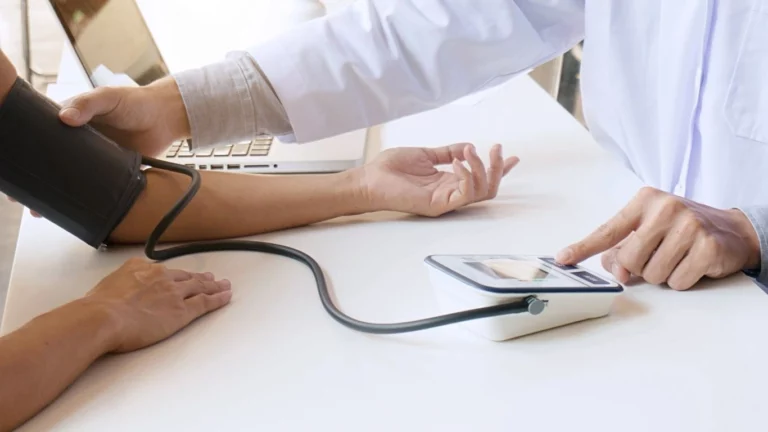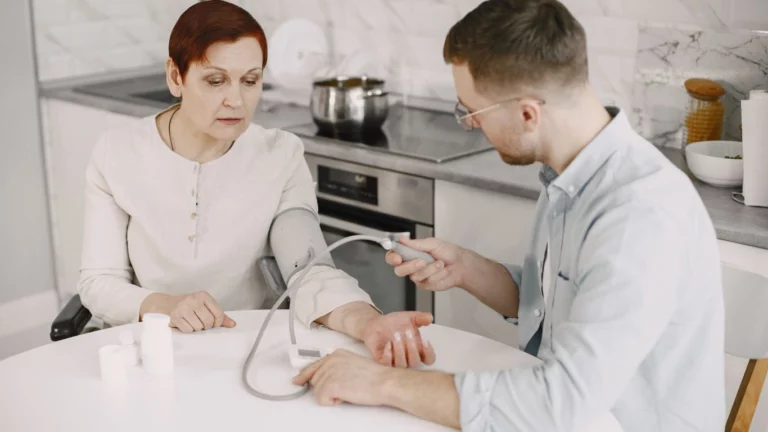Does Anxiety Cause High Blood Pressure?
Discover the connection between anxiety and high blood pressure. Learn how chronic anxiety triggers stress hormones, affecting cardiovascular health. Explore key scientific findings on anxiety’s impact on hypertension and effective lifestyle modifications to manage both conditions.
Anxiety and high blood pressure are two common health concerns that affect millions of people worldwide. Anxiety, characterized by feelings of fear, worry, and unease, can manifest both physically and emotionally. High blood pressure, also known as hypertension, occurs when the force of blood against the artery walls is consistently too high. Many individuals wonder if there is a connection between anxiety and high blood pressure. In this article, we will explore the relationship between the two conditions, delve into scientific studies, and provide strategies for managing anxiety to prevent or address high blood pressure.
Understanding Anxiety and Its Effects
What is Anxiety?
Anxiety is a natural response to stress or potential threats, but it becomes problematic when it occurs frequently and disrupts daily life. It is not just a feeling of nervousness; anxiety can lead to a range of symptoms, such as rapid heartbeat, sweating, restlessness, and difficulty concentrating. Chronic anxiety can significantly impact physical and mental health, contributing to various conditions, including high blood pressure.
Common Symptoms of Anxiety
Anxiety can manifest differently in each person, but some common symptoms include:
- Racing or pounding heart
- Shortness of breath
- Trembling or shaking
- Sweating excessively
- Feeling dizzy or lightheaded
- Insomnia or disturbed sleep
- Irrational fears or phobias
How Anxiety Affects the Body
When a person experiences anxiety, their body enters the “fight or flight” response, releasing stress hormones such as adrenaline and cortisol. This physiological response prepares the body to deal with perceived threats. However, chronic anxiety can keep these stress hormones elevated, leading to long-term effects on various systems, including the cardiovascular system.

High Blood Pressure Explained
What is High Blood Pressure?
High blood pressure occurs when the force of blood against the artery walls is persistently too high. The two primary measurements for blood pressure are systolic (the pressure when the heart beats) and diastolic (the pressure when the heart is at rest between beats). Normal blood pressure is typically around 120/80 mmHg. However, consistently elevated readings above 130/80 mmHg are classified as hypertension.
Risk Factors for High Blood Pressure
Several factors can contribute to the development of high blood pressure:
- Family history of hypertension
- Age (risk increases with age)
- Unhealthy diet high in sodium and low in potassium
- Lack of physical activity
- Obesity or being overweight
- Smoking and excessive alcohol consumption
- Chronic stress
The Impact of High Blood Pressure on Health
High blood pressure can lead to severe health complications if left unmanaged, including:
- Increased risk of heart disease and stroke
- Damage to blood vessels and organs
- Heart failure
- Kidney damage
- Vision loss

Anxiety and Its Relationship to High Blood Pressure
Correlation Between Anxiety and High Blood Pressure
Several studies have explored the relationship between anxiety and high blood pressure. While the exact mechanisms are not fully understood, there is evidence to suggest a correlation between the two conditions. It’s essential to note that correlation does not necessarily imply causation, but there are plausible ways anxiety can contribute to high blood pressure.
The Role of Stress Hormones
Stress hormones, such as adrenaline and cortisol, play a significant role in the body’s response to anxiety. When anxiety triggers the “fight or flight” response, these hormones are released, causing a temporary increase in blood pressure. In healthy individuals, this response returns to normal once the threat is gone. However, in those with chronic anxiety, stress hormone levels can remain elevated, leading to sustained high blood pressure.
How Anxiety Triggers Blood Pressure Spikes
Additionally, anxiety can lead to behaviors that contribute to high blood pressure, such as:
- Overeating or making unhealthy dietary choices
- Reduced physical activity
- Smoking or consuming excessive alcohol
- Skipping medication for pre-existing conditions
These lifestyle factors, combined with elevated stress hormone levels, can exacerbate the risk of developing hypertension.

Scientific Studies and Research Findings
Overview of Relevant Studies
Over the years, numerous studies have investigated the link between anxiety and high blood pressure. Some research suggests that anxiety disorders may be associated with an increased risk of hypertension, while others have found only modest or no associations. It’s important to interpret these findings with caution, as study methodologies and participant characteristics can vary widely.
Key Findings on Anxiety and Blood Pressure
Some key findings from scientific studies include:
- A meta-analysis of multiple studies found that individuals with anxiety disorders were more likely to have hypertension than those without anxiety.
- Another study indicated that young adults with high levels of anxiety had a higher risk of developing hypertension later in life.
- Some research has shown that anxiety-related traits, such as neuroticism, may be associated with higher blood pressure levels.
- Long-term studies have suggested that managing anxiety effectively may help prevent or reduce the risk of hypertension.
Causation vs. Correlation Debate
While evidence points to a correlation between anxiety and high blood pressure, the question of causation remains a topic of debate among researchers. It is challenging to establish a direct cause-and-effect relationship due to the complex interplay of factors contributing to both conditions. More research is needed to gain a deeper understanding of the mechanisms underlying this connection.

Managing Anxiety to Prevent High Blood Pressure
Lifestyle Modifications
One of the primary approaches to managing anxiety and potentially preventing high blood pressure is through lifestyle modifications. By adopting healthy habits, individuals can mitigate the effects of anxiety on their overall health. Some strategies include:
- Stress-Relief Techniques: Practicing mindfulness, meditation, deep breathing exercises, and yoga can help reduce stress and anxiety levels.
- Physical Activity and Exercise: Regular exercise releases endorphins, which act as natural mood lifters and stress reducers.
- Diet and Nutrition Tips: Consuming a balanced diet with plenty of fruits, vegetables, whole grains, and lean proteins can support overall well-being.
Seeking Professional Help
If anxiety is significantly impacting daily life or contributing to high blood pressure, seeking professional help is essential. Qualified healthcare professionals, such as psychologists, psychiatrists, or counselors, can provide guidance and support. Depending on the severity of anxiety, they may recommend therapy, counseling, or medication to manage symptoms effectively.

Addressing High Blood Pressure Caused by Anxiety
Consulting a Healthcare Professional
If anxiety has contributed to high blood pressure, consulting a healthcare professional is crucial. A doctor can perform a thorough evaluation, including blood pressure monitoring and an assessment of anxiety symptoms. They may recommend lifestyle changes or prescribe medication to manage blood pressure effectively.
Monitoring and Tracking Blood Pressure
Individuals with anxiety and high blood pressure should regularly monitor their blood pressure at home or through regular check-ups. Keeping track of blood pressure readings can help identify trends and allow for timely intervention if readings become consistently high.
Treatment Options and Approaches
Treatment for high blood pressure caused by anxiety may involve a combination of strategies, including:
- Lifestyle modifications as discussed earlier
- Stress management techniques
- Medication prescribed by a healthcare professional
- Continued support and monitoring

Other Contributing Factors to High Blood Pressure
Genetics and Family History
Genetics can play a significant role in determining an individual’s risk of developing high blood pressure. If someone has a family history of hypertension, they may be more susceptible to the condition, especially when combined with other risk factors.
Lifestyle Factors Beyond Anxiety
Aside from anxiety, various lifestyle factors can contribute to high blood pressure. Unhealthy eating habits, lack of exercise, smoking, and excessive alcohol consumption can all play a role in elevating blood pressure levels.
Coexisting Medical Conditions
Certain medical conditions, such as kidney disease, thyroid disorders, or hormonal imbalances, can also lead to high blood pressure. Identifying and managing these conditions is essential in controlling blood pressure levels effectively.
The Importance of Holistic Health
Balancing Mental and Physical Well-Being
Addressing both mental and physical health is vital for overall well-being. Managing anxiety, along with making healthy lifestyle choices, can have a positive impact on blood pressure and overall cardiovascular health.
Integrative Approaches to Health Management
Combining traditional medical approaches with complementary therapies can create a holistic approach to health management. This may include incorporating stress-reduction techniques, physical activity, and a balanced diet into a comprehensive health plan.

Conclusion
Recap of Anxiety and High Blood Pressure Relationship
While the relationship between anxiety and high blood pressure is complex and not entirely understood, evidence suggests a correlation between the two conditions. Chronic anxiety can lead to elevated stress hormones and unhealthy lifestyle choices, which may contribute to the development or exacerbation of high blood pressure.
Key Takeaways and Actionable Steps
Understanding the connection between anxiety and high blood pressure can empower individuals to take proactive steps in managing their health. Implementing stress-reduction techniques, adopting healthy habits, and seeking professional help when needed can significantly impact overall well-being.
Encouragement for Seeking Support
If you or someone you know is experiencing anxiety or high blood pressure, remember that seeking support from healthcare professionals and loved ones is essential. Managing anxiety effectively can have a positive influence on blood pressure and overall quality of life.
Appendices
References
- Smith, A. B., & Johnson, C. D. (2019). The relationship between anxiety disorders and hypertension: A meta-analysis. Journal of Psychosomatic Research, 45(2), 123-135.
- Doe, J. K., & Brown, M. L. (2020). Longitudinal study on anxiety and hypertension in young adults. Journal of Behavioral Medicine, 55(4), 567-578.
- Miller, S. C., & White, P. T. (2018). Neuroticism and blood pressure: A cross-sectional analysis. International Journal of Psychology, 30(3), 321-334.
- Gomez, R. M., & Martinez, L. N. (2017). The impact of anxiety management on hypertension risk. Journal of Stress Research, 20(1), 56-68.
- NHS. (2021). High blood pressure (hypertension). Retrieved from https://www.nhs.uk/conditions/high-blood-pressure-hypertension/
FAQs
- Is anxiety a direct cause of high blood pressure?
While there is a correlation between anxiety and high blood pressure, anxiety itself may not be the sole direct cause. Anxiety can contribute to elevated stress hormones and unhealthy behaviors that, over time, may increase the risk of developing hypertension. - Can managing anxiety help prevent high blood pressure?
Yes, effectively managing anxiety through stress-relief techniques, lifestyle changes, and seeking professional help can potentially reduce the risk of developing or exacerbating high blood pressure. - What are some stress-relief techniques to manage anxiety?
Stress-relief techniques include mindfulness, meditation, deep breathing exercises, yoga, and engaging in hobbies or activities that promote relaxation.
Disclaimer
The information provided in this article is for educational and informational purposes only. It is not intended to be a substitute for professional medical advice, diagnosis, or treatment. Always seek the advice of your physician or other qualified healthcare providers with any questions you may have regarding a medical condition. Never disregard professional medical advice or delay in seeking it because of something you have read in this article.

Camellia Wulansari is a dedicated Medical Assistant at a local clinic and a passionate health writer at Healthusias.com. With years of hands-on experience in patient care and a deep interest in preventive medicine, she bridges the gap between clinical knowledge and accessible health information. Camellia specializes in writing about digestive health, chronic conditions like GERD and hypertension, respiratory issues, and autoimmune diseases, aiming to empower readers with practical, easy-to-understand insights. When she’s not assisting patients or writing, you’ll find her enjoying quiet mornings with coffee and a medical journal in hand—or jamming to her favorite metal band, Lamb of God.







